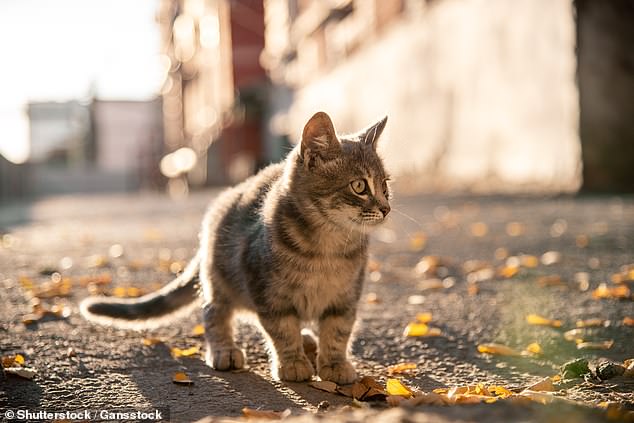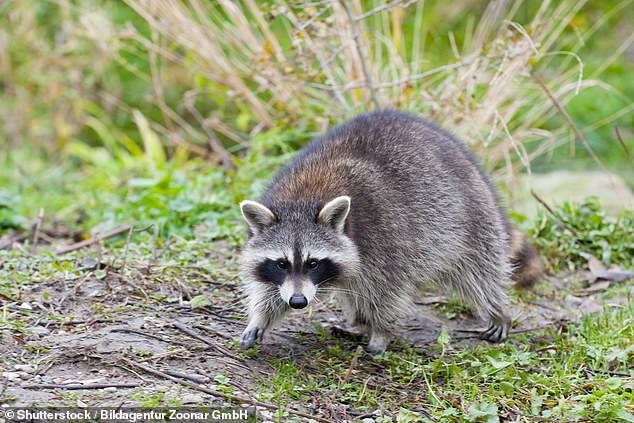Kitten with unusual rabies strain sparks unprecedented public health operation in Nebraska to prevent ‘snowball’ of infections
- A stray kitten was the first cat to test positive for rabies in the area in two decades
- Now health officials are trying to vaccinate 1,000 raccoons locally
- READ MORE: North Carolina shelter on lockdown after multiple flu deaths in dogs
A kitten with an unusual form of rabies has sparked an unprecedented public health operation in Nebraska.
The stray kitten taken in by an Omaha family was later found to have the fatal disease after testing by a veterinarian.
The variant of rabies is normally associated with raccoons east of Appalachia, and so never seen before in Nebraska.
The fact that it spreads to a cat increases the risk of transmission to humans. Now, Douglas County Health officials are working to vaccinate 1,000 raccoons in the local area to prevent further infection.
Rabies is considered 100 percent fatal in humans if the disease is not treated before symptoms begin.

The stray kitten taken in by an Omaha family was later found to have rabies – a preventable, viral disease that usually spreads through the bite of a rabid animal – after being tested by a vet (stock photo)

The strain of rabies that the now-deceased kitten was found to have is normally linked to raccoons east of Appalachia, and has never before been seen in Nebraska (stock photo)
County Health Director Lindsay Huse said The Nebraska Examiner: ‘It’s just something that can snowball very quickly.
“The goal is to prevent this raccoon variant of rabies from becoming established here in our area. This would have a substantial impact if it were to happen and put many people at risk.”
A team of state and federal officials will trap, test and vaccinate raccoons from F to Fort Streets and from 72nd Street to the Missouri River.
Although the virus is “probably not significantly different” from other strains of rabies, there is concern because raccoons are so common in Nebraska and often come into contact with pets.
Officials still don’t know how the kitten, which was no more than a few months old, became infected or how it ended up at the home of the family who took it in in late September.
The family gave the cat away to another family, who took it to a vet after it exhibited strange behavior and became aggressive.
The vet’s results were sent to the Centers for Disease Control and Prevention (CDC), who were able to link it to the raccoon rabies strain.
All 10 people who may have been exposed to the kitten have begun preventative treatment for rabies, the Douglas County Health Department said.
The kitten was the first cat in 20 years to test positive for rabies in the area. Rabies is more common in bats.
Symptoms of the disease in humans include fever, headache, excessive salivation, muscle spasms, paralysis and mental confusion.
There is no specific treatment for rabies and once symptoms appear it is almost always fatal, but a vaccine can prevent infection.
People who are feared to have been exposed to rabies are given Rabies Post-Exposure Prolaxe (PEP) – a vaccine and antibody treatment.
They will receive a dose of man-made antibodies against rabies to fight the infection once exposed, as well as four doses of a rabies vaccine over two weeks.
The vaccine contains a small protein from the surface of the rabies virus to prepare the immune system to fight the real virus if it becomes infected.
